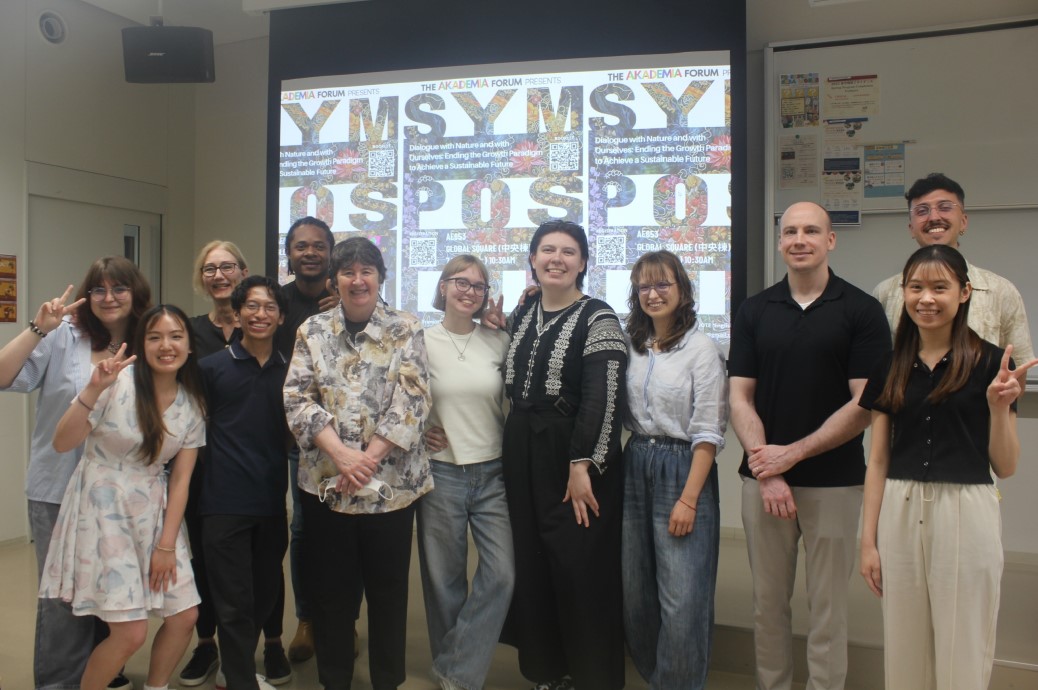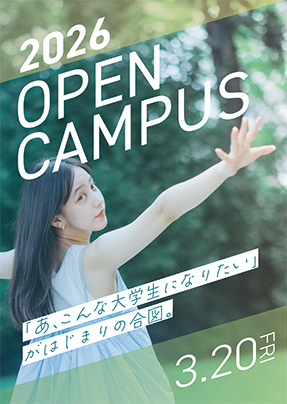AKADEMIA Forumの年次シンポジウムを開催しました
7月5日(土)、本学文学部の学生と教員によるプロジェクト「AKADEMIA Forum」の第3回目となる年次シンポジウムを中央教育棟にて開催しました。
本フォーラムは、現代の地球規模の課題に対する理解を深め、学内外の対話と行動を創出することを目的に、2023年に開始しました。
今年度は「自然と私たちの対話:持続可能な未来に向けた成長パラダイムからの脱却」をテーマに、80名以上の学生らが対面およびオンラインで参加し、学外からはアントーク大学、モロイ大学、東京外国語大学のゲストを迎えました。
シンポジウムでは、経済成長を優先する現代社会における気候変動問題に焦点を当て、ジェイソン・ヒッケル氏の著書『Less is More: How Degrowth will Save the World』を切り口に、経済成長、消費社会、環境問題の関連性について多角的に議論が行われました。
フォーラム会場では、本学文学部学生による「自然との対話」をテーマにした写真やポスターなども展示されました。



